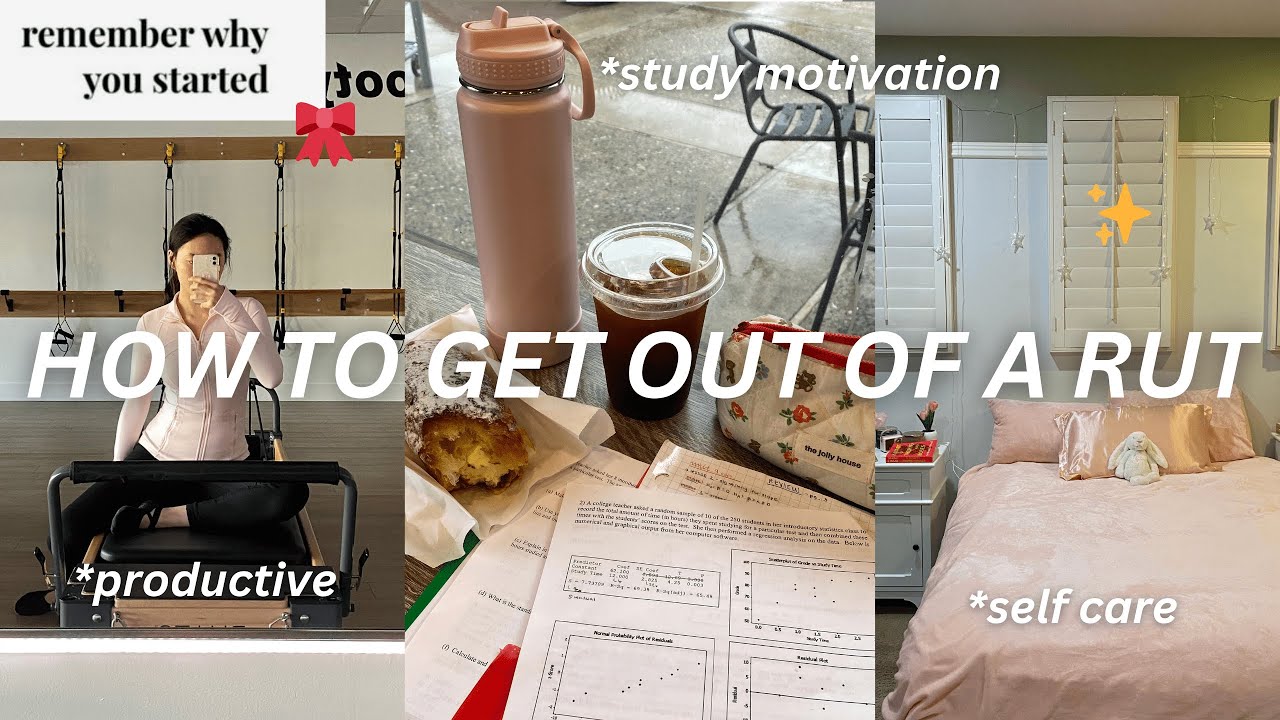Study with Me + Anki Flashcard Method - Ali Abdaal
Summary
TLDRIn this study with me video, the creator shares their day off as they prepare for the MRCP medical exam. They start late but dive into studying neurology, their weakest subject, using a mind map for an overview. The creator emphasizes the importance of active recall and spaced repetition, using Anki flashcards for quick capture of new information. They also take breaks to practice Japanese with Rosetta Stone, watch YouTube, and spend time with friends, demonstrating a balanced approach to studying.
Takeaways
- 🕒 The video creator set an early alarm but woke up later, emphasizing the struggle with morning routines.
- 🏠 After waking up, the creator spent time on personal hygiene and household chores before starting to study, highlighting the importance of a clean environment for productivity.
- 📚 The study session focused on neurology, the creator's weakest subject, showcasing the strategy of targeting weak areas first.
- 🧠 The use of a mind map to categorize neurology topics was emphasized, illustrating the value of organizing information for better understanding.
- 📝 The creator used a combination of online notes and a presentation to create the mind map, demonstrating the utility of various resources in study preparation.
- 🔁 The concept of 'quick capture' was introduced, showing how to efficiently convert new information into flashcards using Anki.
- 📱 The video mentioned the use of Anki over Quizlet due to the speed of input, underlining the importance of efficiency in study techniques.
- 🌐 The creator took a break to practice Japanese on Rosetta Stone, indicating the value of breaks and diversifying study methods.
- 📊 The afternoon was spent continuing with online questions and using the 'quick capture' method to create flashcards, reinforcing the active learning process.
- 📊 The creator converted the neurology syllabus into toggle lists on Notion, showing how digital tools can aid in study organization and active recall.
- 🎵 The use of a study playlist was mentioned, suggesting that music can be a helpful tool to maintain focus and motivation during study sessions.
- 👫 Studying with a friend was highlighted as a way to add variety and make the study process more engaging.
Q & A
What is the purpose of the video?
-The purpose of the video is to document a day in the life of the content creator while studying for the MRCP medical exam, sharing study techniques and strategies along the way.
Why did the content creator set the alarm for 7:00 a.m.?
-The content creator set the alarm for 7:00 a.m. to start the day early and appear as a motivational and productive member of society.
What is the first subject the content creator decides to study?
-The first subject the content creator decides to study is neurology, which is identified as their weakest area.
How does the content creator approach studying neurology?
-The content creator approaches studying neurology by first scoping the subject, categorizing topics into sensible categories using a mind map, and then reviewing questions on an online question bank.
What is the significance of using a mind map in the study process?
-Using a mind map helps the content creator to have a big picture view and a structured skeleton of the content, which aids in understanding where new information fits within the broader subject.
What is the content creator's strategy for dealing with questions they get wrong or find new?
-The content creator's strategy is to turn everything they get wrong or find new into flashcards on Anki, utilizing active recall and spaced repetition for effective studying.
What is the concept of 'quick capture' as mentioned in the video?
-'Quick capture' is a productivity concept where ideas or information are quickly and efficiently recorded into an app or notebook to free up cognitive load and ensure effective note-taking or task management.
Why does the content creator choose Anki over other flashcard software?
-The content creator chooses Anki over other flashcard software because it is faster to input new flashcards, which is crucial for their quick capture method of generating study materials.
What language does the content creator practice and how does Rosetta Stone assist in the learning process?
-The content creator practices Japanese, and Rosetta Stone assists by making language learning interactive and game-like, integrating grammar into scenarios and using voice recognition for pronunciation practice.
How does the content creator integrate new information into their study materials?
-The content creator integrates new information by copying and pasting it into Anki for flashcards and Notion for organized note-taking, which aids in active recall and spaced repetition.
What does the content creator do to change the scenery while studying?
-To change the scenery, the content creator moves to a different location, such as the sofa, and also incorporates music from a study playlist to keep themselves entertained and motivated.
How does the content creator's friend Jake contribute to the study session?
-Jake contributes to the study session by joining the content creator to review Anki flashcards together, providing a social and collaborative aspect to the study process.
Outlines

このセクションは有料ユーザー限定です。 アクセスするには、アップグレードをお願いします。
今すぐアップグレードMindmap

このセクションは有料ユーザー限定です。 アクセスするには、アップグレードをお願いします。
今すぐアップグレードKeywords

このセクションは有料ユーザー限定です。 アクセスするには、アップグレードをお願いします。
今すぐアップグレードHighlights

このセクションは有料ユーザー限定です。 アクセスするには、アップグレードをお願いします。
今すぐアップグレードTranscripts

このセクションは有料ユーザー限定です。 アクセスするには、アップグレードをお願いします。
今すぐアップグレード関連動画をさらに表示

I Passed the CompTIA Security+ Certification in 9 Days

HOW TO GET OUT OF A RUT | productive vlog, study motivation, self-care habits

Should I Buy a BMW Car ?❤ - Irfan's View

How to pass the Microsoft AZ-900 Exam in 2 weeks!

FIRST DAY OF HIGHSCHOOL GRWM 2020! (freshman)

How to EASILY PASS NETWORK+ Certification Exam in LESS than 5 WEEKS, Study Resources and TIPS
5.0 / 5 (0 votes)
